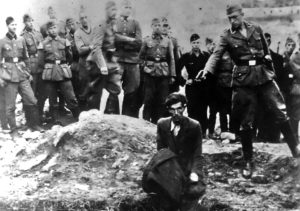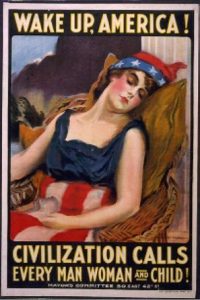
In school, “Dawn” invited feelings of a revived life, of new joys, and possibilities. Emily Dickinson’s poem beckoned me into a wondrous future:
One can either greet the dawn or dread it.
Not knowing when the Dawn will come,
I open every Door,
Or has it Feathers, like a Bird, Or Billows, like a Shore.
Growing up on a small chicken ranch, I rushed out at dawn to collect eggs. Later, in yet another dawn, I shucked off my pajamas to dive into the water of our suburban outdoor swimming pool. Soon after, my older brother and close friend took a midnight hike up Mt. Wilson to witness yet another dawn.
My family’s experience as Russian Jews who fled from antisemitism left some relatives and friends behind to become victims of the Holocaust. Oddly, this initiated me into a very different view of dawn. As a young teenager, I read profusely about the Holocaust– had nightmares, and deep sorrows. I found Elie Wiesel’s historical novel, Dawn. Elie had escaped from Buchenwald. His writings reflect an attempt to overcome his anger with a humanistic view of the present. In Dawn, Elie’s protagonist is called Elisha which is the name for a Biblical warrior, king, and prophet. Elie’s name is a derivative of this warrior who defended the Hebrews.
 Elisha’s mission requires him to execute Israel’s enemies. The novel’s narrative explores the psychological terrors and purpose of this pursuit. The title Dawn refers to the custom that executions occur in the early morning. We are reminded of this by the redundancy of the word “dawn” throughout the novel. Elisha was aware of the Nazi’s procedure to execute Jews in the morning.
Elisha’s mission requires him to execute Israel’s enemies. The novel’s narrative explores the psychological terrors and purpose of this pursuit. The title Dawn refers to the custom that executions occur in the early morning. We are reminded of this by the redundancy of the word “dawn” throughout the novel. Elisha was aware of the Nazi’s procedure to execute Jews in the morning.
For Elie and and protagonist, Elisha, the day’s dawn symbolizes death. The conclusion of the book ends with Elisha assassinating the enemy at dawn.
 I have despaired by the discovery of two meanings for “dawn.” Every time I see the word, I have to choose one of two meanings: the dawn of discover or the dawn of death. I think this is best revealed when I read slogans like “The Dawning of America.” Which dawn is it?
I have despaired by the discovery of two meanings for “dawn.” Every time I see the word, I have to choose one of two meanings: the dawn of discover or the dawn of death. I think this is best revealed when I read slogans like “The Dawning of America.” Which dawn is it?



Richard, from Emily to Elie, wow, gotta catch my breath. Provocative, disturbing, your sorrowful account of ‘Dawn’ blows away my sheltered fairytale view of it. The holocaust is the one of the most profound acts of evil ever inflicted on the human race, all under the brutality of a madman. It sickens me today to watch it materialize again in America
by many of the fringe groups vying for center-stage. Ladies of Liberty have already sent us backwards a hundred years. Maybe with all hope and faith in the majority of evolved humanity, the ‘dawning’ will belong to us.
Patty:
You understood my meaning. Glad I good communicate this.
Like a good Talmudic scholar, you challenge us with your perceptions of dawn, Richard. You ask us to hold conflicting thoughts in our mind. Some can do this, others cannot. I believe that those associated with Retrospect with appreciate what you have done. Unfortunately, our country no longer values critical thinking, but that is a topic for a different day.
Betsy: thank you. I had wondered how appropriate my prompt was for the group.
But I was more concerned about your son’s response.
Perhaps you are referring to my brother, who is the rabbi with the Talmudic speciality. My children are both in the tech world. I typically do not share other’s stories with others outside this group and my brother has other, real-world, concerns right now (the program he has taught at for 44 years in Cincinnati, the birth place of the Reform Jewish movement is being slowly shutdown; it has 3 more years to run. They are not enrolling new students. He is heartbroken).
I really appreciated this story. It presented a new perspective on dawn from how I had been thinking about it—but of course you are right that it has long been associated with execution, and horribly in the Holocaust. Betsy’s comment about holding conflicting thoughts is apt. Of course we hope for a dawn that is a rebirth and chance to start anew, hopefully better, but can’t lose sight of the alternatives.
Thank you for understanding my perspective. I do, of course, like the dawns I have seen in Ct. Unfortunately I am from California where we only have sunsets.
Had to laugh at your description of California. Lived there for many years. One of the strangest experiences was visiting Long Beach and watching the sun set over the land–what? Some trick of geography, bays, peninsulas….
Thanx for your thought-provoking story Richard.
I well remember Eli Wiesel’s powerful novel Dawn.
I realize most of my own stories are light-hearted but I have also written two very personal stories about the Holocaust entitled Family Photo and Our Special Guests that you may want to read.
https://www.myretrospect.com/stories/family-photo/
https://www.myretrospect.com/stories/our-special-guests/
Dana: I have pictures of my relatives just before they were murdered in the camps. I cannot look at pictures of the Holocaust today or the terrors in Ukraine. They are not just images but produce a flood of emotions and memories which blur them from my eyes.
Understood Richard.
We are so accustomed to think of the dawn as a beginning; of the day, of an adventure, what have you, that is is jarring to be made to think of it as an ending, especially of a life, or many lives.
In my younger and more morose years, I was quite enamored of the poetry of A.E. Housman. Two of his poems, “Eight O’Clock” and “On Moonlit Heath and Lonesome Bank” touch upon the habit of killing prisoners in the morning. He may have written more (AEH was nothing if not reliably depressing), but those two popped back into my head as I read your story.
Dear Dave. Thank you for the Housman reference. I am very happy you put my piece together. I feared it was too brief.
Today with the pollution of Canadian smoke, Chinese smog and world wide storms, it is hard to recognize a dawn that is referenced in the emotional and heart warming literature of the past.
R
Good question, Richard. I enjoyed your unique and thought provoking approach to this prompt.
Interesting look at two starkly different definitions of dawn, Richard. That’s a word that lends itself to so many interpretations as does — unfortunately — the word “woke.” Two things I’ve always had trouble understanding in recent years: 1. Why it’s such a radical, hideous thing to be awakened (ie: woke), and 2. Why “mainstream media” has become a perjorative concept. I spent a career trying to swim mainstream as a journalist, trying to avoids the lures of opinion dangling just beneath the surface.